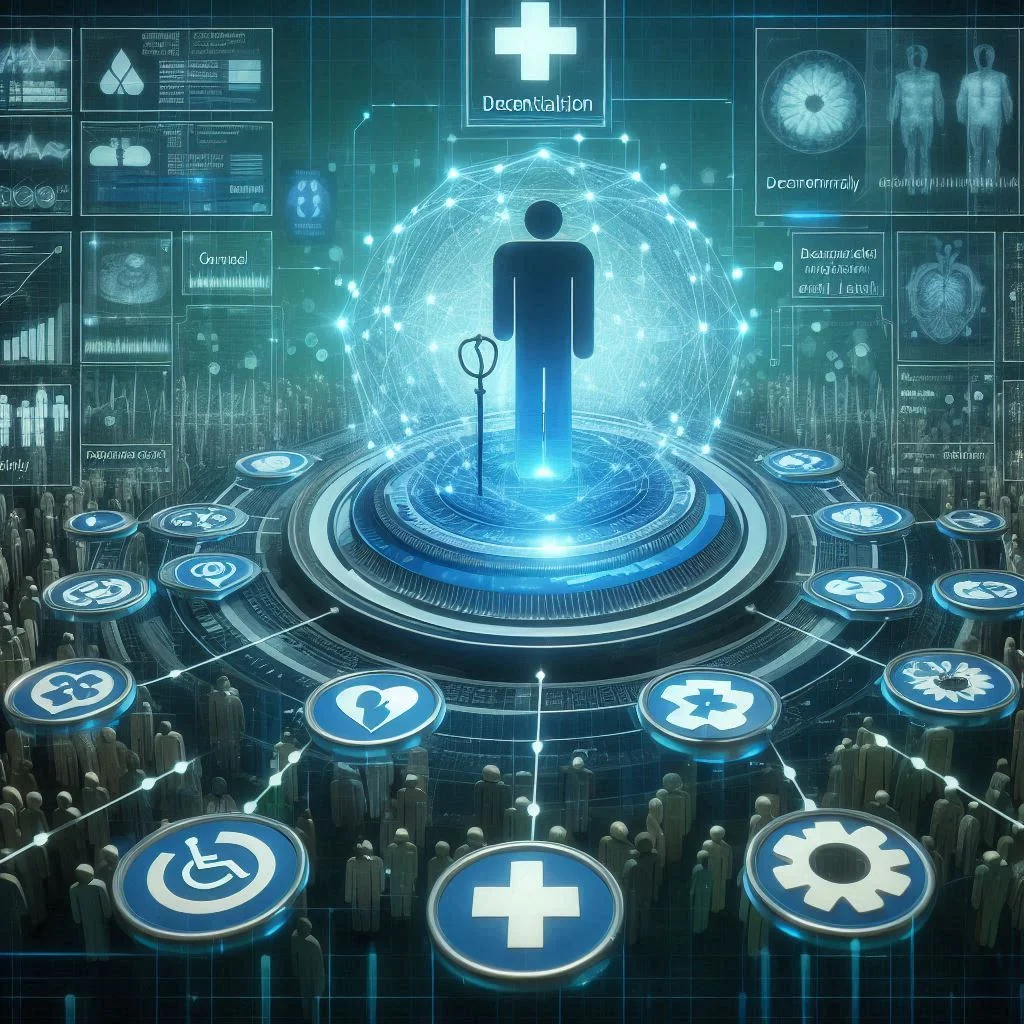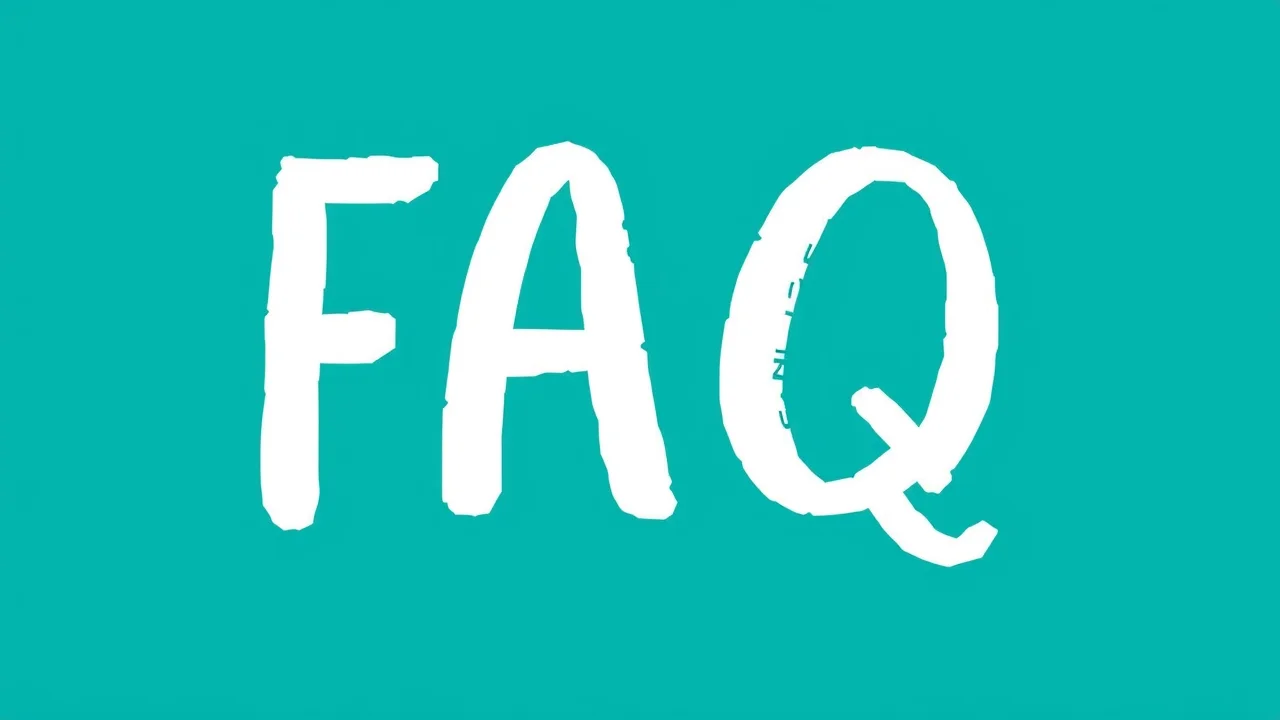Did you know blockchain technology can revolutionize healthcare by securing health records and ensuring HIPAA compliance? This technology promises safer, decentralized data management, protecting patient privacy and reducing fraud—transforming how health information is stored and shared in ways never before possible.

How Blockchain Health Records Are Transforming Data Access and Security
"The adoption of blockchain in healthcare is not just about security; it’s about creating a transparent, patient-centric model where data flows securely and efficiently between providers, payers, and patients."
— Dr. Rasu Shrestha, Chief Strategy Officer, Atrium Health
In an era defined by relentless cyberthreats and increasing demand for improved data access, blockchain health records are set to transform healthcare by enhancing data security, patient privacy, and ownership. A decentralized, immutable ledger—hallmark features of blockchain technology—has the potential to address decades-old issues in the maintenance and sharing of medical records and electronic health records (EHRs).
By enabling secure data sharing across diverse healthcare providers and platforms, blockchain health records empower patients with control over their medical data, offering a cutting-edge solution for healthcare leaders and patients alike. With data breaches only growing in number and sophistication, adopting a transparent and tamper-resistant system is rapidly evolving from a theoretical best-practice to a real-world necessity.
Whether you're a patient eager for more control, a provider navigating compliance hurdles, or an industry stakeholder seeking the next big disruptive technology, understanding blockchain’s practical impact on health records sheds new light on why this technology draws skyrocketing attention.
In this article, we’ll demystify how blockchain networks create stronger data security, why patient-driven control matters for HIPAA compliance, and what challenges remain before blockchain can truly become the healthcare industry’s killer app. We'll move beyond hype, analyzing real-world pilots and expert opinions, and guiding you to actionable steps for embracing the next era of healthcare data management.
What You'll Learn About Blockchain Health Records
The fundamentals of blockchain technology in health record management
How blockchain improves data security, patient privacy, and compliance with HIPAA
The differences between blockchain health records and traditional electronic health record (EHR) systems
Insights from industry experts on blockchain use cases in decentralized health records
Potential barriers and ethical considerations in blockchain adoption for medical records
Future trends and opportunities for blockchain health records
As healthcare organizations explore the integration of blockchain with electronic health records, it's important to recognize that the underlying principles of secure data management and patient-centered care also apply to other chronic health conditions.
For example, understanding how blockchain could support the management of complex cases—such as those involving chronic pain or neurological disorders—may offer new perspectives, much like the evolving landscape for disability benefits for migraine sufferers and the need for secure, accessible medical documentation.

Understanding the Foundation: Blockchain Technology & Blockchain Health Records
Defining Blockchain Technology in Medical Records and Health Data
What is blockchain technology?
How does blockchain tech ensure data security in healthcare?
Key advantages over traditional health records systems
Common use cases: medical records, care data, and smart contracts for patient information
At its core, blockchain technology is a decentralized, immutable distributed ledger that ensures secure management of health record data. Unlike traditional databases, blockchain networks record data in interconnected ‘blocks’ that are encrypted, chronologically chained, and validated across a network of computers (nodes).
This approach guarantees that medical data is securely recorded and cannot be altered retroactively, making medical records tamper-resistant and enhancing data security. For health record management, blockchain dramatically reduces the risk of unauthorized data access and catastrophic data breaches.
In the healthcare industry, the potential of blockchain technology is immense. Instead of hospitals and providers acting as siloed data custodians, the blockchain model allows for secure data sharing across multiple entities with cryptographic protections. Patients and care providers can transact, view, and update care records and health data using smart contracts—programmed rules that automate permissions, notifications, and compliance.
Unlike legacy health record databases, any data access or change is permanently recorded with an audit trail, promoting trust in the authenticity and origin of each entry. This is especially potent when dealing with sensitive electronic health information, as patients can trace exactly who has accessed their medical record and for what reason.
How Blockchain Supports Electronic Health Records (EHRs) and Data Access
Integration of electronic health record management
Improved data access for care providers and patients using blockchain tech
Immutable audit trails for medical record history
Integrating blockchain technology with existing electronic health record platforms adds robust data security and transparency to health record management. When an electronic health record interaction occurs—say, a physician updating allergy information or a lab uploading results—it’s immediately encrypted, timestamped, and added as a new block in the patient’s ledger.
This approach creates an immutable audit trail that cannot be tampered with or erased, a stark contrast to traditional EHR systems where centralized data storage can be manipulated, lost, or mismanaged. For both patients and care providers, this auditability not only prevents fraud but also ensures compliance with healthcare regulations.
From a data access standpoint, blockchain networks enable fast and secure data exchange among authorized healthcare providers while enforcing strict controls on who can view or modify health records. Patients, empowered with digital keys, can grant or revoke access for anyone in their care network—be it a primary doctor, a specialist, or a new hospital. For the first time, the concept of universal, patient-controlled medical records becomes achievable. This paradigm shift supports a collaborative, yet secure, healthcare ecosystem where information follows the patient, rather than being locked inside provider-specific databases.
Table: Legacy EHR Systems vs. Blockchain Health Records
Criteria |
Legacy EHR Systems |
Blockchain Health Records |
|---|---|---|
Data Security |
Centralized, higher risk of breaches |
Decentralized, tamper-resistant, cryptographically secured |
Data Access |
Limited, fragmented, institution-controlled |
Patient and provider controlled, auditable, transparent |
Patient Control |
Minimal; patients rely on providers |
Maximum; patients manage access permissions |
Compliance |
Complex, costly audits required |
Automated, traceable, supportive of HIPAA principles |

Blockchain Health Records: HIPAA Compliance and Patient Privacy
Is Blockchain Technology Truly HIPAA Compliant?
Understanding HIPAA requirements for electronic health records
The role of smart contracts and cryptography in maintaining medical data privacy
Case studies: blockchain tech in HIPAA-regulated health environments
A key question in the healthcare industry is whether blockchain health records can comply with the stringent data security and privacy standards required by HIPAA HIPAA mandates strict control over the confidentiality, integrity, and accessibility of electronic health records and medical data. Blockchain technology, with its end-to-end encryption, distributed storage, and transparent audit logs, is inherently aligned with these objectives—but implementation details matter.
Smart contracts in blockchain tech automate permissions and consent for data sharing, ensuring that only authorized users can access specific medical records. Cryptography further secures health data, making it unreadable without the appropriate digital keys. In real-world deployments, such as trials at select U.S. hospitals and research institutions, blockchain systems have demonstrated that patient privacy can be preserved even as information moves across provider networks.
But while the potential is enormous, full HIPAA compliance requires meticulous planning: controlling access rights, ensuring off-chain data storage is secure, and having rapid breach-response protocols are just as important as having a tamper-proof ledger.
"HIPAA compliance isn't just about encryption—it’s about ensuring only the right eyes ever see sensitive medical records. Blockchain holds the key to a new era of selective, patient-controlled medical data sharing."
— Industry Lead, Health Data Security Company
As blockchain health records continue to evolve, their ability to combine privacy, patient empowerment, and regulatory compliance has inspired further pilot programs and regulatory scrutiny. For patients and providers alike, the promise of a system that drastically limits data breach exposure and gives data ownership back to individuals is a compelling vision that could soon become the norm in healthcare.

Decentralization in Medical Records: Patient Control and Clinical Trial Data
Patient Empowerment through Blockchain Health Records
Decentralized health records: patients as data owners
Permissioned data sharing and transparent audit logs
Improving patient outcomes through greater health record control
Blockchain technology transforms the patient’s role from a passive data subject to an active owner of their health record data. Instead of health records being locked away at each clinic, hospital, or insurer, decentralized storage and smart contracts empower individuals to manage health data as they wish. Want to grant your eye doctor access, but not your chiropractor? Patients can do this, with access privileges instantly adjustable at their discretion—nothing moves or changes without explicit, digital consent.
Every instance of medical record access—by a care provider, pharmacy, researcher, or insurer—is written into a transparent and immutable audit log. Patients can view precisely when, why, and by whom their sensitive health information was accessed, reinforcing trust and supporting compliance standards.
With these tools, the healthcare industry has an opportunity to simultaneously improve patient trust, reduce unauthorized disclosures, and support more coordinated, effective care delivery. The clear chain of custody over patient information is a revolutionary leap in both individual empowerment and public health outcomes.
Use Cases: Blockchain Health Records in Clinical Trials and Research
Real-time data sharing for multi-site clinical trials
Reducing medical fraud and duplicate testing
Smart contracts facilitating transparent, secure research collaboration
Decentralized blockchain health records aren’t just beneficial in primary care settings—they are also poised to streamline data sharing and reduce inefficiencies in clinical trials and research. By providing researchers with verified, real-time data access (with patient consent), blockchain networks simplify the logistics of managing multi-site trials. Every intervention, test, or observation is recorded on-chain, ensuring data integrity even across global research teams.
Reducing medical fraud and redundant testing are direct benefits of using a single source of truth for medical records. With every action traceable and verifiable, the opportunities for misconduct or error plummet. Smart contracts can automate the distribution of research payments, trigger protocol reminders, or ensure access is only granted to parties that meet specific regulatory or ethical standards. Ultimately, blockchain-enabled clinical trial data management could accelerate medical discovery, reduce costs, and build patient confidence in the research process.

Challenges for Blockchain Health Records: Adoption, Data Security, and Ethical Considerations
Barriers to Implementing Blockchain Technology in Healthcare
Technical integration hurdles with current EHRs
Regulatory uncertainty: data access and governance
Scalability of blockchain health record platforms
Despite blockchain’s promise, several real-world challenges remain before widespread adoption. Integrating blockchain health records with current electronic health record (EHR) systems is not as straightforward as swapping out software. Many health organizations rely on outdated databases and lack the IT resources needed for major upgrades, leading to concerns about interoperability and migration risks. Additionally, regulatory frameworks have not kept pace with blockchain tech’s capabilities—questions remain regarding jurisdiction, data governance, and the legal status of patient consents stored on distributed ledgers.
Scalability is another pressing issue. While blockchains are secure, they can be slow or costly when processing thousands of health record updates per second. Edge-case scenarios—such as emergency medical care or disaster response—require near-instantaneous data access, putting pressure on blockchain system architects to deliver both speed and reliability. Overcoming these hurdles will require close collaboration between health IT vendors, providers, and regulators to set standards and ensure that innovation doesn’t outpace patient safety or public responsibility.
Ethical Considerations: Privacy, Consent, and Data Ownership
Balancing data security with accessibility for emergency care
Ethics of immutable health records: correcting errors and patient rights
Medical record permanence and right to be forgotten
Adopting blockchain health records brings new ethical dilemmas to the forefront. While immutability and permanent audit trails are powerful for fraud prevention and trust building, they complicate routine matters like correcting medical errors or honoring a patient’s “right to be forgotten.” Careful governance mechanisms—possibly via off-chain references or redactable smart contracts—are required to ensure balance between data integrity and necessary flexibility.
Emergencies pose another challenge. While patients should control who sees their health information, in crisis situations, fast access could mean the difference between life and death. Blockchain-enabled emergency override protocols, where limited data can be accessed by certified care providers under strict audit and after-the-fact disclosure to patients, are already being explored. Addressing ethical quandaries with sensitivity and foresight will be crucial for healthcare providers and blockchain solution developers alike.
Expert Opinions: Is Blockchain Tech the Future for Electronic Health Record Systems?
"Blockchain technology has the potential to enable universal health record access without sacrificing patient privacy, but interoperability between systems remains a major unsolved challenge."
— Blockchain/EHR Integration Advisor
Expert outlooks on adoption timelines
Industry perspectives on regulatory acceptance
Opinions on cost-effectiveness and sustainability of blockchain health records
Industry experts agree on one thing: blockchain technology represents a massive leap forward in healthcare data management. Advocates predict that within five to ten years, leading health organizations will have piloted—and in some cases fully deployed—blockchain health record solutions, especially in regions or systems where data silos are most problematic.
However, challenges around interoperability, particularly among legacy health IT vendors, remain formidable hurdles. Full-scale, cross-platform adoption will likely hinge on government standards, third-party integration frameworks, and shifting incentive models that reward innovation rather than lock-in.
Opinions are mixed on cost-effectiveness. Proponents argue that, once deployed, blockchain health records will dramatically reduce costs linked to data breaches, legal compliance, and medical fraud. For smaller private practices or underfunded health systems, the upfront investment may be hard to justify—unless regional or national infrastructure is already being built.
Overall, as regulatory acceptance grows and technology matures, blockchain’s sustainability and power to support a global, patient-centered data access ecosystem are coming into sharper focus.

The Future of Blockchain Health Records: Opportunities and Innovations
Key Innovations from Blockchain Tech in Healthcare
Interoperable medical record networks across providers and borders
Decentralized data security advancements: zero-knowledge proofs, multi-signature access, federated learning
Emerging smart contract use cases for automating care delivery and outcomes tracking
Tomorrow’s blockchain health records could do far more than secure data—they could enable a truly interoperable medical data network that spans hospitals, countries, and even continents. With standards for interoperable blockchain networks evolving, patients who travel or seek care across borders could see their health record instantly follow them, enriching every encounter with up-to-date and verified medical data.
Advanced cryptographic strategies such as zero-knowledge proofs and multi-signature access aim to give patients even more granular control: data can be securely shared without disclosing any more information than absolutely necessary. Federated learning—training AI models on decentralized medical data—promises faster, more secure, and ethically aligned health research.
Meanwhile, smart contract-driven automated care delivery (e.g., scheduling, insurance claim validation, or remote outcomes tracking) could drastically reduce administrative overhead while ensuring payment and compliance events are recorded transparently for all stakeholders.
Upcoming Trends to Watch in Blockchain Health Records
Integration of wearable devices with blockchain tech
Potential for blockchain-based health insurance claims and payments
Public health impact: real-time outbreak monitoring and population studies
Looking ahead, the integration of wearable health devices with blockchain will unlock new dimensions of personalized care and real-time health monitoring. Imagine blood pressure data from your smart watch being added securely to your blockchain health record, accessible only to authorized care providers or with your explicit consent to research teams.
Blockchain-based health insurance—where claims, approvals, and payments are processed in real time via smart contracts—could reduce fraud, slash administrative costs, and speed reimbursement for patients and providers alike. Public health systems stand to benefit as well, leveraging anonymized blockchain health data for outbreak monitoring, vaccination tracking, and epidemiological studies, all while respecting patient privacy. The future is closer than many realize, with numerous pilot projects already delivering measurable outcomes in interoperability, fraud reduction, and improved patient satisfaction.
Top Blockchain Health Record Pilots and Deployments
Organization |
Region |
Type |
Status |
Reported Outcomes |
|---|---|---|---|---|
MediLedger |
USA |
Pharmaceutical supply chain, Health records |
Pilot/Live |
Improved traceability, enhanced security, better compliance reporting |
MyPCR (BlockApps) |
Canada |
Personal health information management |
Pilot |
Patient-controlled records, seamless sharing across clinics |
FryslandCampina/Philips |
Europe |
Cross-border EHRs |
Pilot |
Faster cross-border data sharing; improved consent management |
Medicalchain |
UK/Global |
Decentralized EHRs |
Expansion |
Reduced fraudulent claims; increased patient trust |
People Also Ask About Blockchain Health Records
Can blockchain be used for medical records?
Explanation of blockchain health records for medical record storage, data access, and security improvements
Yes, blockchain technology is being adopted in healthcare to securely store, manage, and share medical records. Each interaction is encrypted, linked, and visible in an immutable ledger, which prevents unauthorized access, reduces errors, and enhances the security of sensitive healthcare information. Ultimately, it gives both patients and providers better, faster, and safer access to critical medical data.
What is the blockchain in healthcare?
Definition of blockchain technology's core principles in healthcare settings and medical data management
In healthcare, blockchain refers to a distributed ledger that manages medical and health record data using cryptographic security and consensus mechanisms. It allows for tamper-resistant data logs, patient-controlled access, and transparent audit trails, making it ideal for applications where privacy, accuracy, and trust are paramount.
Is blockchain HIPAA compliant?
Discussion of HIPAA rules, blockchain tech standards, and what’s needed for compliance in health records
Blockchain systems can support HIPAA compliance by encrypting data, providing fine-grained access controls, and maintaining detailed logs of all medical record interactions. However, HIPAA compliance depends on more than technology alone—it requires strong governance, rapid breach responses, and secure off-chain data management. Most experts see blockchain tech as highly promising for compliance, but organizational and regulatory frameworks must evolve alongside it.
What type of records can be kept in a blockchain?
Examples: medical records, electronic health records, imaging, lab results, administrative health record data, and patient consents
A wide range of healthcare data can be securely managed on blockchain networks, including electronic health records, diagnostic imaging, lab results, prescription histories, clinical notes, insurance information, and patient consent forms. Blockchain technology ensures these records are tamper-proof, auditable, and shareable as needed, all while protecting patient privacy and consent.

FAQs: Blockchain Health Records in Practice
How are blockchain health records different from standard EHRs?
Blockchain health records are decentralized and provide immutable audit trails. Unlike conventional EHRs, which are typically controlled by individual institutions, blockchain-based records let patients own and manage their own data sharing permissions.Who controls access to blockchain-based medical records?
Data access is controlled by the patient, who can grant or revoke permissions for healthcare providers, researchers, or insurers via cryptographically secure digital keys and smart contracts.How is patient privacy maintained?
Patient information is encrypted and can only be revealed or shared with express, digitally signed consent. Every access event is logged and auditable, promoting transparency and accountability.What are the biggest risks?
Challenges include technical integration, scalability, ethical complexities around data permanence, and ensuring emergency accessibility without compromising security or privacy.Can blockchain replace current health record systems?
While blockchain is unlikely to fully replace all legacy systems overnight, it is already being used to supplement and improve conventional EHR architectures—especially where interoperability and patient control are top priorities.
Key Takeaways: Blockchain Health Records
Blockchain health records have the potential to transform data access, security, and patient control over medical information
Full HIPAA compliance remains complex, but technological innovation is narrowing the gap
Adoption depends on industry-wide cooperation and continued advancement in blockchain tech for healthcare
Further Reading, Tools, and Resources on Blockchain Health Records
Authoritative publications on blockchain tech and EHR adoption
Links to top blockchain health records projects
Recommended forums and discussion groups
Start Exploring Blockchain Health Record Solutions Today
Evaluate leading blockchain health record pilots and platforms for your organization
Contact an expert or join a community to learn more about patient-centered care data and decentralized medical records
Conclusion
Blockchain health records stand at the intersection of innovation and necessity, forging new standards in data security, privacy, and patient empowerment. Now is the time to explore, learn, and help shape the future of healthcare data management.
If you’re interested in how digital innovation is reshaping the broader healthcare landscape, consider exploring the latest CDC vaccine recommendations and their impact on health-conscious adults. Understanding public health guidance and the evolving role of technology in healthcare can help you make more informed decisions for yourself and your loved ones.
Dive deeper into the intersection of policy, prevention, and patient empowerment by reading insights from recent CDC meetings. This perspective will equip you with a holistic view of how emerging technologies and evidence-based recommendations are shaping the future of wellness and care delivery.
*You May Also Like, "Who Owns Your DNA? A Plain-English Guide to Patient Data Rights in the Digital Age"
Sources
Blockchain technology is revolutionizing healthcare by offering secure, decentralized management of health records, ensuring patient privacy, and enhancing data interoperability. For instance, the article “PatientDataChain: A Blockchain-Based Approach to Integrate Personal Health Records” discusses a decentralized infrastructure that integrates data from various wearable devices into a unified personal health record system, granting patients ownership and control over their data. (pubmed.ncbi.nlm.nih.gov)
Similarly, “The HealthChain Blockchain for Electronic Health Records: Development Study” explores a consortium blockchain model that enables secure sharing of electronic health records among hospitals, insurance providers, and governmental agencies, addressing privacy and performance concerns. (jmir.org)
These resources provide valuable insights into how blockchain can transform health information storage and sharing, offering practical examples of its implementation in healthcare.
 Add Row
Add Row  Add
Add 




Write A Comment